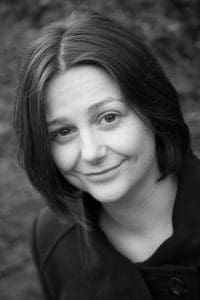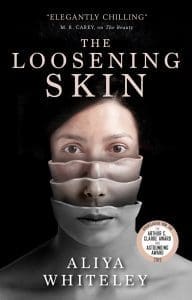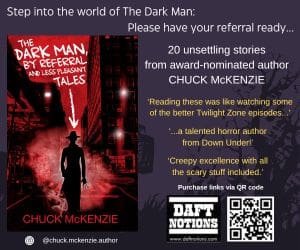The Horror Tree Interview with Aliya Whiteley

The Horror Tree Interview with Aliya Whiteley
By Lionel Ray Green
 The Loosening Skin is a genre-bending science fiction novel by British author Aliya Whiteley. Slated for a U.S. release on February 23rd, The Loosening Skin is another addition to Whiteley’s ever-growing catalogue of critically acclaimed books.
The Loosening Skin is a genre-bending science fiction novel by British author Aliya Whiteley. Slated for a U.S. release on February 23rd, The Loosening Skin is another addition to Whiteley’s ever-growing catalogue of critically acclaimed books.
Nina Allan, who won the 2017 British Science Fiction Award for Best Novel, offers high praise for Whiteley’s work.
“I firmly believe that Aliya Whiteley is one of the most original, innovative, and intelligent writers of speculative fiction working in Britain today.”
Since a runner-up finish in a short story competition in 2004, Whiteley has consistently delivered stories accompanied by industry acclaim. Her past work has been shortlisted for several accolades, including the Shirley Jackson Awards and the British Fantasy Awards.
The Loosening Skin is no exception. The novel was a 2019 finalist for the John W. Campbell Memorial Award for best science fiction novel and shortlisted for the Arthur C. Clarke Award and British Fantasy Awards.
I was honored to conduct an exclusive email interview with Whiteley for Horror Tree.
Reading her biography, I loved the nugget where she says, “I like those moments in stories where you have no idea what’s going to happen next. The moments when genre can’t save you.” I asked her to explain.
“I clearly remember the first time I read Daphne Du Maurier’s Rebecca,” Whiteley says. “That novel starts out as a romance. The characters fall in love, they get married, they find happiness. But it all happens very quickly, at the beginning of the novel.
“I can remember, as a teenager, not knowing a thing about that book and thinking ‘but there are pages and pages still to go.’ And then strange happenings started to sneak in, and suddenly it wasn’t romantic, and the expectations of that genre could no longer keep me comfortable. It transformed into horror, and I was captivated by that change.
“I love genre, and how we understand it, and even think it keeps us safe, within certain boundaries. But I can’t resist trying to recapture that moment, in Rebecca, when I first realised that breaking the rules of genre can lead to hugely surprising, transfixing stories.”
Whitely writes unique genre-bending stories in the realms of sci-fi, mystery, and horror.
“I don’t think I’ve ever had an idea that’s grabbed me straight away, or come to me fully formed,” says Whiteley. “The books always start off as little challenges that I set myself, such as trying to write a great hook in one paragraph, or simply playing around with a character that could be difficult to get right, and then extra bits get added on and it eventually becomes the thing I need to write, if only to get it out of my head so I can stop thinking about it! It’s strange how they often end up looking like they sprang from one place, when in fact the elements coalesce quite slowly.”
Whiteley’s website subhead describes her as “writing novels, short stories and articles. Usually weird ones.” So, what’s her definition of weird?
“I like the idea that defining weird fiction would stop it from being weird fiction,” Whiteley explains. “I keep it as unclassifiable … more of a feeling than a set of guidelines. Returning to the first answer – maybe it’s the way a story can surprise me that makes it weird, for me. I love it when I don’t know where things are going.”
Is there anything weird about Whiteley?
“Since weird is in the eye of the beholder, I have no idea whether it’ll seem weird to everyone else, but I really hate mayonnaise,” says Whiteley. “Hate it. Does everyone else like it? Sometimes it feels like everyone else must love it, since it’s in all the prepacked sandwiches. And I can’t drive a car. Do these count? I get the feeling I’m only very weird on the page, not in real life.”
Whiteley tackles complex themes in her work like identity, destiny, and challenging norms.
“I’ve written a few things where changing some familiar aspect of life has created a space into which all sorts of big themes and ideas can rush,” Whiteley says. “I think it’s got something to do with being able to see everyday life with fresh eyes. What if we all shed our skins? What if a community decided to give up technology? It gives a freedom to the kind of thoughts the writer and the reader can have. I like the distance it creates from the here and now, where we come with all our assumptions in place.”
The Loosening Skin is scheduled for release in the U.S. on Feb. 23. The main character Rose Allington is a bodyguard for celebrities and suffers from a disease that causes her to shed her skin quicker than other humans, which of course causes major and frequent changes in her life.
“I’ve reached an age now where I’ve been through some big changes in my life, and also seen some things stay remarkably the same,” says Whiteley. “And I can reflect on that through other people who’ve long been part of my life, too – family and friends. Why do some aspects of personality stay constant, and other aspects change beyond recognition? How does that relate to our experiences of having bodies that age, or change? I don’t have any answers to this, of course! But I really enjoyed looking for some answers and writing that search into The Loosening Skin.”
 The opening lines of The Loosening Skin address love. “Some people burn love and some people bury it. Some keep it locked up, or push it far under the bed. Some sell it.” In her short story, “Owls and Pussycats,” she writes, “Time, like love, is a relative concept.” What’s her take on love in our lives and writing?
The opening lines of The Loosening Skin address love. “Some people burn love and some people bury it. Some keep it locked up, or push it far under the bed. Some sell it.” In her short story, “Owls and Pussycats,” she writes, “Time, like love, is a relative concept.” What’s her take on love in our lives and writing?
“I’m a bit obsessed with these small words that can mean so many things,” Whiteley says. “Love. Change. Fear. Time. And Weird! I think I know what they mean to me, but I’ve got no way of communicating that perfectly, so there’s always some doubt remaining. For instance, when people say, ‘We’re in love,’ does it matter if that love is not the same between them? That element of doubt, of wondering how to be sure of what I feel or what others feel, is also a driving force. So, I could say that all my novels are really about the difficulty of achieving real communication.”
In my research, I learned Whiteley had written a nonfiction book titled The Secret Life of Fungi: Discoveries from a Hidden World. What about fungi interested her enough to break away from speculative fiction and delve into their world?
“My novella, The Beauty, was about fungi, and I’ve long had an interest in those organisms,” says Whiteley. “Really, they are absolutely amazing. After The Beauty was released, I was approached by a publisher and asked if I wanted to write a nonfiction book about fungi, and I couldn’t have turned that opportunity down. It was incredible. I spent months reading everything I could get my hands on about fungi, and then I tried to turn all that into a short book that put across my fascination with them – how they are part of everything, every aspect of life on this planet. And beyond, even into space. How they have influenced literature, and mythology, and medicine, and society. I really couldn’t do that enormous subject justice, but I really enjoyed giving it a go, and creating something quite personal, and enjoyable, in the process.”
February is Women in Horror Month, and female writers have influenced Whiteley’s work.
“I should start with Du Maurier, since I named her in the first answer!” Whiteley says. “Shirley Jackson, too, at around the same age; I remember first reading her wonderful stories. Later, I came across her novel Hangsaman which does many of the things I’ve talked about here – delving into horror under the guise of a different genre. I love that book. Angela Carter’s horror-soaked fairy tales, and then her novels. Octavia Butler’s sci-fi/horror crossovers. Those were early influences on me. Very recently, I’ve really loved Han Kang’s The Vegetarian and the short stories of Priya Sharma. So many more between then and now. I’ll stop there.”
Finally, since Horror Tree is chiefly a website resource for writers, I asked if she had any tips or advice to share.
“When I get stuck, I keep a notebook by the bed and I write as soon as I wake up,” says Whiteley. “I fill just one page of the notebook, not thinking about what comes out, before I look at my phone, or clean my teeth. It takes five minutes, and it is so good to write in that grey spot between night and day. It has always helped me to find where I want to go next. I first came across that exercise in Dorothea Brande’s book Becoming a Writer, and it has definitely helped me. If nothing else, when my brain is completely stuck, it makes me feel like I’m still a writer. If you write – even if it’s for five minutes a day – you’re a writer, right?”
- About the Author
- Latest Posts
Lionel Ray Green is a horror and fantasy writer, an award-winning newspaper journalist, and a U.S. Army gulf war veteran living in Alabama. His short stories have appeared in more than two dozen anthologies, magazines, and ezines, including The Best of Iron Faerie Publishing 2019; America’s Emerging Science Fiction and Fantasy Writers: Deep South; and Alabama’s Emerging Writers. Drop by https://lionelraygreen.com/ and say hello.










